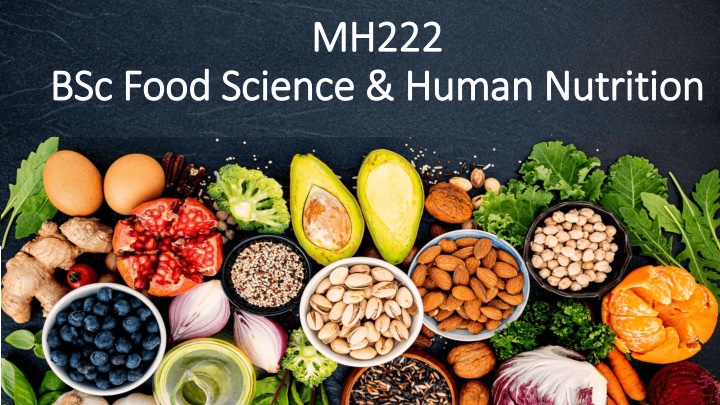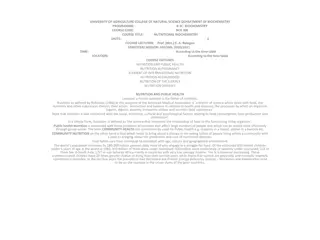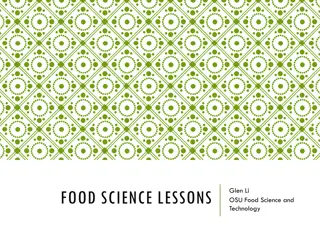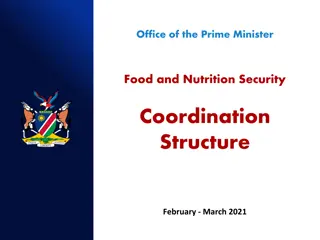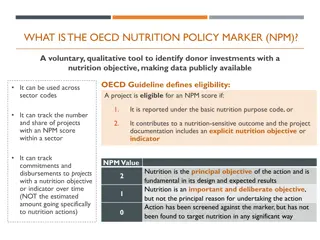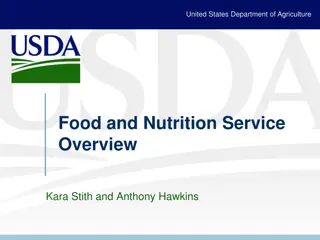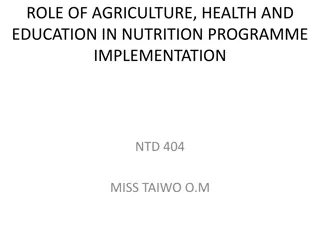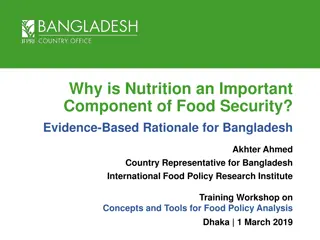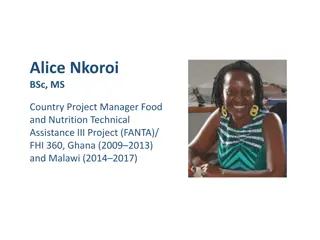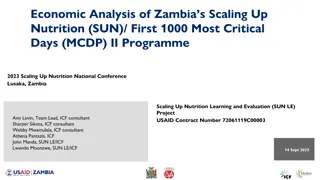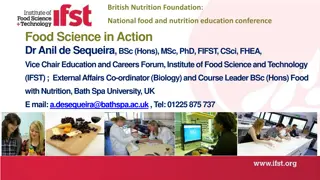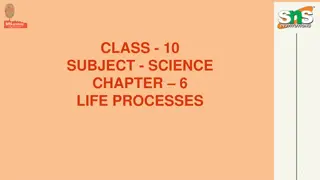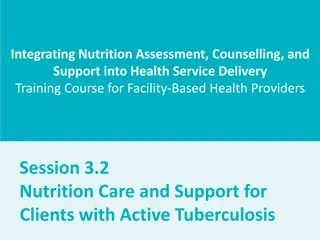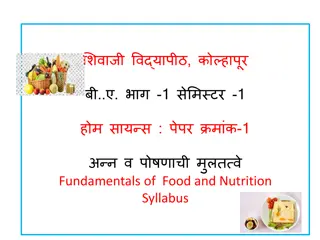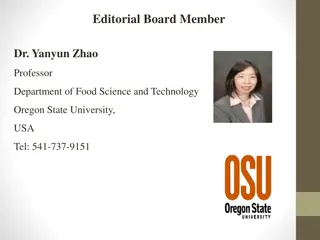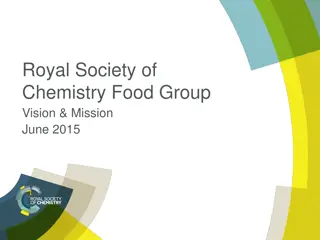BSc Food Science & Human Nutrition Programme Overview
This BSc Food Science & Human Nutrition programme at Maynooth University offers a comprehensive understanding of nutrition, biology, and chemistry as applied to food. With a focus on ingredients, production, products, and nutrition, students explore various aspects of food science including food safety, quality assurance, and global food security. The programme includes a 6-month work placement in the third year and covers topics such as future foods, nutrition, and sustainable food practices.
Download Presentation

Please find below an Image/Link to download the presentation.
The content on the website is provided AS IS for your information and personal use only. It may not be sold, licensed, or shared on other websites without obtaining consent from the author.If you encounter any issues during the download, it is possible that the publisher has removed the file from their server.
You are allowed to download the files provided on this website for personal or commercial use, subject to the condition that they are used lawfully. All files are the property of their respective owners.
The content on the website is provided AS IS for your information and personal use only. It may not be sold, licensed, or shared on other websites without obtaining consent from the author.
E N D
Presentation Transcript
MH222 MH222 Click to edit Master title style BSc Food Science & Human Nutrition BSc Food Science & Human Nutrition
Click to edit Master title style A major sector, employing over 400,000 people A major sector, employing over 400,000 people
Click to edit Master title style Examples in the Maynooth Hinterland Examples in the Maynooth Hinterland
Click to edit Master title style BSc Food Science & Human Nutrition BSc Food Science & Human Nutrition - - 2023 2023 Places for 2023: 25-30 Entry requirements Programme requirement of O4/H7 Maths One science subject is required No 3rdLanguage Requirement Entry via CAO system, code MH222
Click to edit Master title style MH222 MH222 - - BSc Food Science & Human Nutrition BSc Food Science & Human Nutrition It is a 4-year programme It is based around the core Maynooth Science programme, providing a broad science background. The programme will build on core understanding in nutritional science, biology, and chemistry, as applied to food. It has a 6-month work placement in 3rdyear
Click to edit Master title style The Focus of this programme The Focus of this programme Ingredients Production Products Nutrition The Focus of this programme The biological aspects of food and food spoilage Chemical and rheological aspects around food materials, textures, and mixtures Future foods, nutrachemicals, functional food products Food product safety, quality assurance, and regulatory compliance The role of taste, flavours, and texture Global food security, sustainable foods, and the circular economy Human nutrition, energy and metabolism, personalised nutrition, and sports nutrition
Click to edit Master title style Year 1 the foundation modules Core credits 60 core credits Food, Diet, Health, 7.5 Chemistry, 15 Food, Diet and Health (7.5 credits) Food, Physiology And Exercise (7.5 credits) Food, Physiology, Exercise, 7.5 Biology (15 credits) Introductory Maths (15 credits) Chemistry (15 credits) Maths, 15 Biology, 15 Food, Diet, Health Food, Physiology, Exercise Biology Maths Chemistry
Click to edit Master title style Year 2 strengthening the scientific foundations Core modules 50 credits Human Nutrition 1 Food Chemistry And Analysis Energy & Metabolism Food Trends, Challenges And Opportunities Biochemistry Animal Physiology Molecular Biology Of The Cell Organic Chemistry Physical Chemistry Spectroscopy & Analytical Chemistry May choose 10 credits from electives, critical skills, or additional modules in chemistry or biology. Total 60 credits. Food and nutrition Biology Chemistry
Click to edit Master title style Year 3 dedicated content and work placement Core modules 30 credits Food Choice - Taste and Flavours Food Production Systems Nutrition for Health and Performance Food Microbiology Nutrition As We Age Food Rheology, Texture and Structure of Food There is a 30 credit work placement or experiential learning module. This takes all of second semester.
Click to edit Master title style Year 4 the option to specialise Choose 9 of the following modules Nutrition & Global Health Personalised Nutrition Food Safety and Authenticity Nutrition within the Clinical Setting Food Marketing and Product Development Food Policy & Regulation Nutrition within the Clinical Setting Exercise and Nutrition: Health Promotion and Policy Food Analysis and Quality Assurance Sports Nutrition & Pharmacology Future Foods Functional and Sustainable Foods Students will also undertake a 15-credit capstone project
Click to edit Master title style Career Pathways Graduates of this programme will be able to take up roles in Production management Nutrition New product development and research Entrepreneur and new business startups Food quality and safety Public sector (e.g. DAFM, Teagasc) Health promotion This programme is excellent preparation for students to progress to accredited postgraduate programmes in the area of dietetics, as well as other postgraduate opportunities in the area of public health and social policy. There are opportunities for students to undertake research degrees, at Master s and PhD level in a variety of topics in the area of food science and nutrition.
Questions Questions Click to edit Master title style
